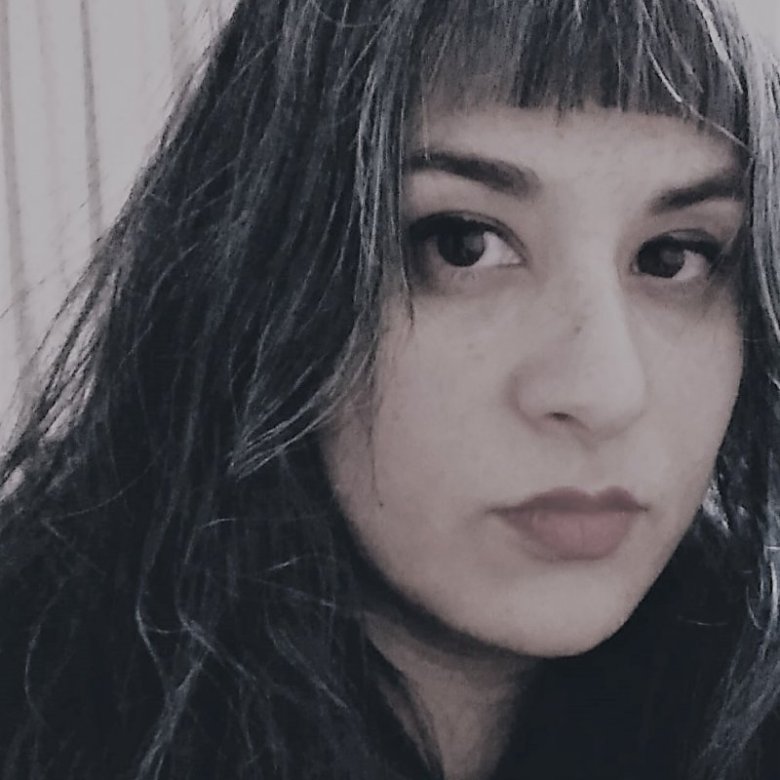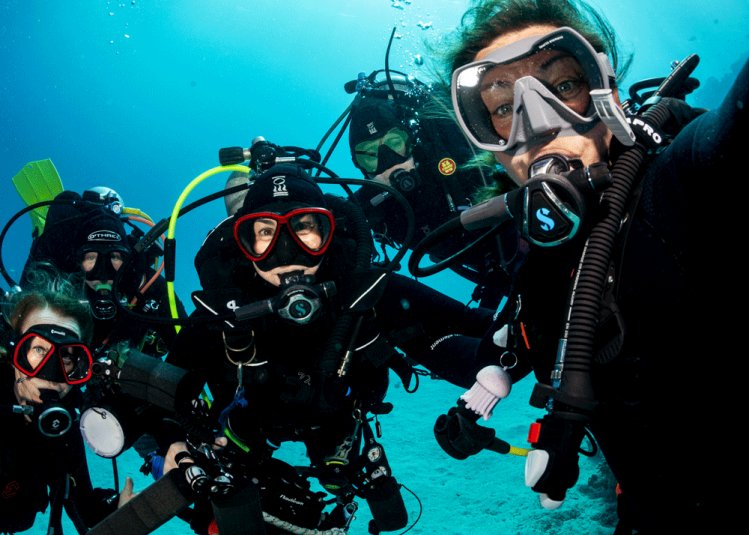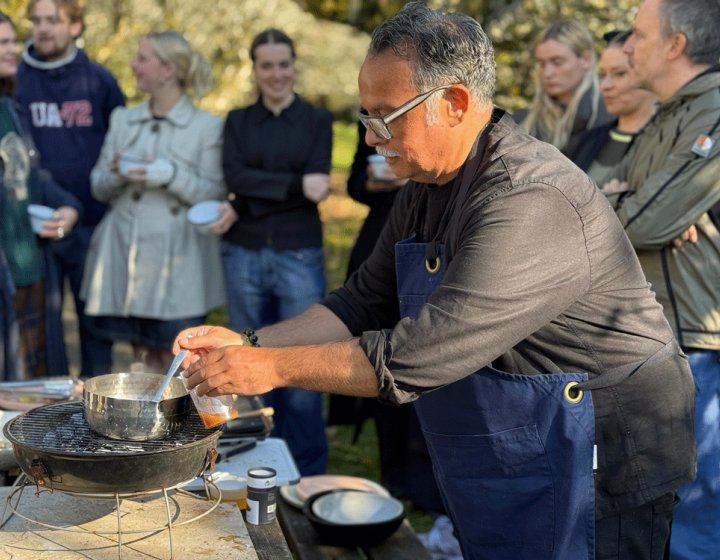Public art, AI and economically sustainable practices: in conversation with Shefali Wardell
21 February 2023

Multidisciplinary artist Shefali Wardell leads Falmouth’s online BA in Illustration with an eclectic career under her belt. Beginning her creative journey as a fine artist with stints in prosthetics and visual effects for horror films, her passion was piqued by the possibilities of illustration, leading her to develop skills in drawing and digital art.
Looking back, Shefali reflects; “I got into illustration in the first place because of its democratic principles. I’d be wandering around places like Tate Modern, seeing amazing exhibitions, but looking at everyone else there and thinking ‘we aren’t really the people that need to see this’, and thinking that the £20 ticket makes it inaccessible to many people. Illustration has always had a low price point, and it became a way for me to distribute my own drawings in a way that more people could access.”
As well as the democratic principles of illustration, Shefali’s creative journey has taught her about the arts as a vehicle for doing good in the world. “For the past ten years I’ve predominantly worked on collaborative public art projects. Last year I worked with Arts and Heritage Alliance MK, in partnership with the Milton Keynes Hindu Association, on a public art project which involved lots of community workshops to build up the assets and installation for the final exhibition in MK Gallery.”
In addition to her commitment to public art projects, Shefali is motivated by helping others to develop economically sustainable practices. “There are all sorts of clichés about the creative industries being competitive and unstable. And while some of those clichés are true, it’s still one of the biggest industries in the UK, so it is absolutely possible to build a successful career in illustration.”
Taking up the reigns of BA Illustration Online
Developed as part of Falmouth’s illustration department, students on the new online BA Illustration Online are already experiencing the power of the community and networks created on the course. “All sectors of the creative industries require creative networks to be built; and that’s not networking in the sense of pulling out your business card. Instead, it’s about properly getting to know people, understanding what makes them tick, and really feeling part of a community.”
Online study cultivates a way of working that’s particularly productive for illustrators, and one that Shefali specialises in, having taught on Falmouth’s online MA in Illustration prior to leading the new undergraduate course. “Developing online networks is only going to become more important in the future. The pandemic led to lots of different ways of working, and because here at Falmouth we had been delivering online study for years beforehand, we’re used to working and connecting in a productive way from different places. It particularly suits the world of illustration: not being tied down to an office in a fixed location.”
The challenges facing the sector
It’s not just ways of working that have impacted the creative industries; technological advances continue to change the landscape at pace. “Negotiating the challenges of creative practice is vital in education, and one of the biggest we’re currently facing in illustration is technology; specifically, AI and blockchain technology. These areas are transforming everything we understand as illustrators about the value of art, and copyright.
“Technology develops so quickly, but we address that on the course by having staff who work in these areas, and by contributing to the changes in the sector through our research and practice as a university. We aim to educate our illustrators about these challenges so they can go on to explore how to harness this technology to their advantage.”
What makes a successful illustrator?
Above all, Shefali believes the best way to navigate the industry is the discovery of your authentic creative voice. “I always think back to an illustration project I worked on with the Ministry of Stories - a writing charity in London - and Hackney Libraries. They paired children from their after-school writing club with professional illustrators, and together we worked on books. The boy I was paired with wrote a story, and as we started talking about his visual aspirations, he drew lots of sketches, which I then built into my illustrations. So, when the book was published, he could recognise his own ideas in the finished product. I didn’t realise how important that would be until I got to the book launch event at the library and his face completely lit up; it emphasised to me just how much ownership people can feel of their own creative voice.”
The course has resultantly been designed with this idea at the core. “Negotiated practice is integral to the course and is crucial within an area as broad as illustration. It helps people to become specialists and to develop their own creative identities. We help people to identify how and where they can apply their personal brand of creativity within the industry, and to consider their own practice in a way that can be financially sustainable.”




